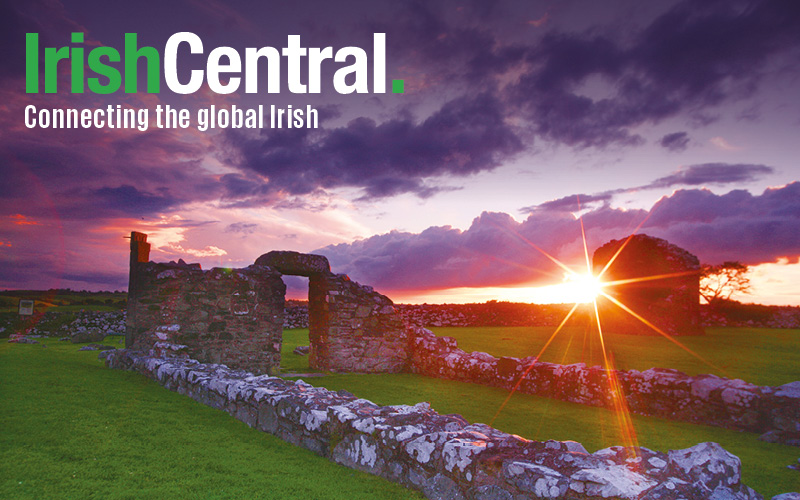If there's one thing the Orange Order and the New York St. Patrick's Day parade committee can agree on, it's the gays. Whether they wear the sash of 1690 or the sash of 1916, both are now united in one remarkable new way -- they both believe gay people must always remain second class citizens.
Talk about an unforeseen irony. It turns out only the gays have had the power to unite Ireland. Who would have predicted that in 1916?
If only we had had the sense to send drag queen Panti Bliss to Stormont to negotiate the Good Friday Agreement, we'd probably have had peace by Holy Thursday.
Mock Panti all you like, but you have to concede she's already had a more lasting political effect on the direction of modern Ireland than any of the bowler hat or Tricolor wearing hordes of the Orange Order or the parade committee, which only seem to exist now to conduct a pointless battle to prevent the future from happening.
But neither the Orange Order or the committee combined will stop marriage equality from coming to Northern Ireland, or will stop LGBT groups from finally marching in the New York St. Patrick's Day parade soon.
How do I know this? Because no good comes of opposing the civil rights of your own Irish sons and daughters, or opposing the civil rights of your neighbors either, as The Troubles taught us (they did teach us that, didn't they)?
On the surface, there's little that can unite the militant Protestant faith of the Orange Order with the militant Catholicism of the parade committee, except for those gays, who now apparently have the Harry Potter-like power to bring two ancient foes together under their brightly colored rainbow.
Just ask yourself, if you're gay and being openly discriminated against by a fraternal order, will it matter to you if they're Orange Men or the parade committee? If they're constantly treating you like a second class citizen, and preventing you from marching in celebration of your country and heritage, will you really see much of a distinction between their respective religious faiths?
The answer is no, you will not. Because there actually is no difference between them. Both are constantly relegating you to the side streets and the shadows, where they believe you belong.
Recently the Fermanagh County grand master Stuart Brooker said gay people could not join the Orange Order because "homosexuality is wrong.”
Brooker clarified his apparently homophobic statement by calling for “civil and religious liberty for all,” apparently forgetting he had just stated he didn't really support the civil and religious liberty of gay people.
It's always instructive to watch a grand master of the Orange Order call for “civil and religious liberty,” because the Orange Order has a famously checkered history on that issue when it come to their Catholic neighbors. But calling for “civil and religious liberty” for Orangemen and not so much for the people we disfavor doesn't have the same ring to it, does it?
And year after year, like latter day George Wallaces, the parade committee also broadcast their own anti-gay message in the middle of gay-friendly Manhattan: segregation today, segregation tomorrow, segregation forever, they insist.
It won't end well for either anti-gay group. It can't. It never ends well when you stand in pointless defiance of the civil rights of your own sons and daughters, or your neighbors. History has talked itself hoarse trying to convince these backward looking groups of the error of their ways.
Over a quarter of all Orangemen now are over 65. John Dunleavy, the chairman of the parade committee whose power was actually diminished after a board meeting several weeks ago, is getting up in years. Young people are increasingly leery of both organizations for a reason: their anachronistic views.
Meanwhile the U.S. and Ireland have changed dramatically. But it appears all these two groups have left, both in Ulster and in New York City, is the need to keep saying no to the present and the future.
Ulster says no, New York says no. So really, what's the difference between them?




Comments